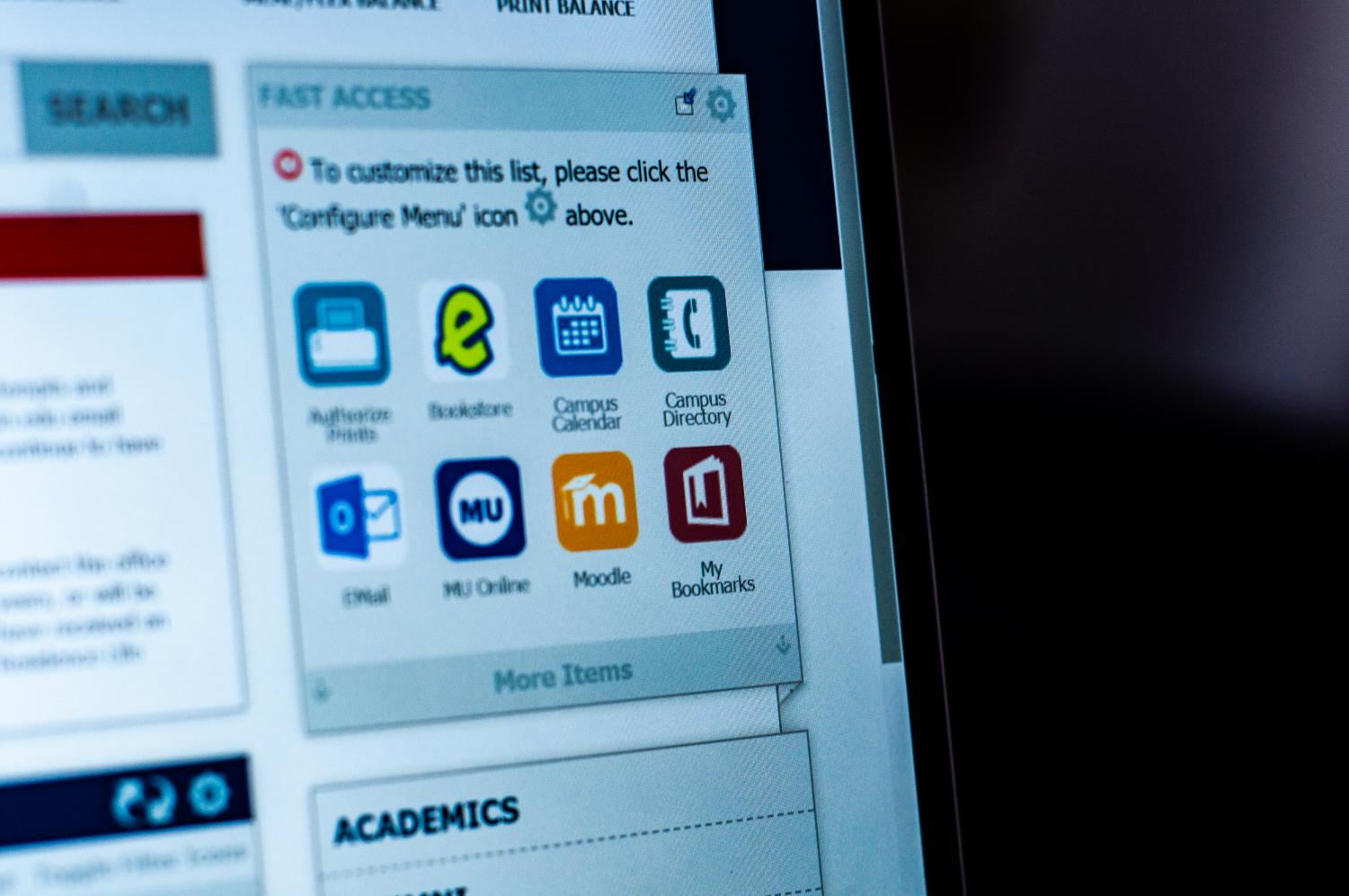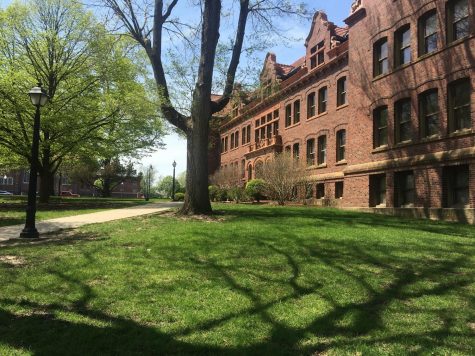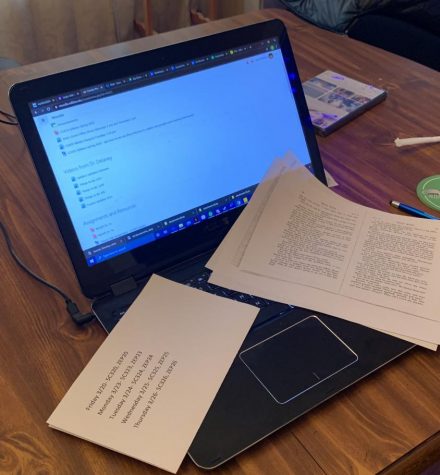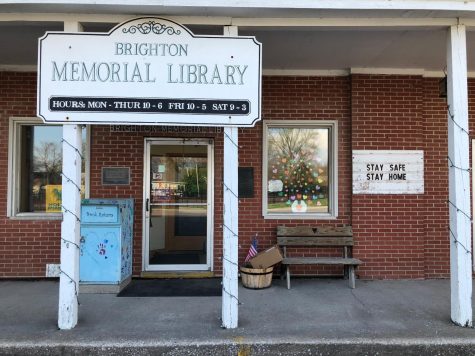Students and Professors Reflect on Online Learning
May 4, 2020
Students and professors are reflecting on their experience with online learning as the semester nears its end. While most people agree that online learning isn’t as fulfilling as in-person classes, students and professors have been doing what they can to succeed despite these issues.
“The ballet barre has become a chair, the voice studio has become my room, and yet, the show goes on!” Annie Reichart, a musical theater major, said.
There have been a lot of adjustments in the last few months amid the COVID-19 pandemic. Millikin’s decision to move to online classes starting in mid-March was one of the most life-altering changes for the Millikin community.
“We know that for some of you, your lives have been upended, and we are trying to be understanding and work with you,” Dr. Paris Barnes, a professor and chair of the Chemistry department, said. “Your futures are incredibly important to your professors, and I encourage you to be honest in everything you submit to your teachers, communicate well with your professors (especially when you are struggling), and to be graceful when things are difficult.”
Millikin’s Performance Learning has come to mean something different entirely. As Reichart has learned, some classes, like performance classes, art studio classes, and science labs, are much harder to orchestrate online. Professors and students had to find new ways to teach and learn, often with limited access to supplies.
Erica Reyes, an art therapy major, says that her studio classes are using Moodle for feedback and discussion. While this works, it isn’t as fulfilling as her time in the studio because she can’t get the same advice from her classmates that she used to receive in every class period.
“My parents have helped me make a little corner in my basement to give me some space,” Reyes said. “It is hard though because we don’t have the sense of community and the ability to work in person with our classmates like we did in the studio. Some of the upperclassmen used to help me and give me advice while I was working, but now I have to wait for Moodle posts to get that advice.”
Professors are doing what they can to minimize the issues that students might face. For example, Reyes had to rework one of her projects because she no longer had access to the photography studio. Her professor helped her figure out what she could do with the materials she has at home.
Barnes is thankful for the collaboration with other professors who have helped him make the transition to an online format.
“I think that all professors are attempting to put their absolute best effort into teaching online,” Barnes said. “I frequently talk with about four of my colleagues each week, and I know we are all trying to continue to help our students learn…Some of the ideas on how to handle different teaching challenges have been answered through my communications with my college friends at Millikin and at other institutions.”
Their advice has helped Barnes to continue teaching his classes as normally as possible.
However, Barnes acknowledges that there are some things that don’t translate to an online environment as well as he would like. In place of laboratory classes, he provides simulations and videos, but he worries that he isn’t achieving his learning goals.
“Attempting to convey hands-on learning experiences through simulations and videos showing how the analyses are done…it is just not the same,” Barnes said. “I worry about the laboratory and critical thinking skills that students might be missing out on…I think there’s lost value without the real, hands-on laboratory experiences.”
But other professors have found that there are advantages to teaching online. Dr. Eduardo Cabrera, professor of Spanish and chair of the Modern Languages department, says that his students have been using YouTube and PowerPoint to create oral presentations. He believes that this provides them with additional practice.
“Students have the possibility of doing and redoing their presentations in a way that is acceptable for them,” Cabrera said. “That gives them a lot of practice in speaking. Since they are also required to comment on their classmates’ presentations, they are also practicing one of the most important skills: listening comprehension!”
Just as the pandemic has altered education, most people have also felt its effects in their personal lives. Cabrera is aware of this, and he has found ways to incorporate the pandemic into his lessons rather than ignoring it.
“In one of my classes, we worked on how the corona-virus affects the situation of Latinx immigrants, particularly undocumented immigrants,” Cabrera said. “It was a great pleasure for me to read students’ reflection on that topic; their spirit of solidarity with those in need is remarkable!”
Reichart agrees that there are some advantages to online learning. She has to record herself singing and acting for her performance classes, and she thinks that this has helped her improve. Even once in-person classes resume, she plans to apply some of the learning techniques that she has adopted.
“I previously hadn’t received the opportunity to view my progress throughout the semester in a form where I could physically see it,” Reichart said. “Now, because I have so many videos of myself doing classwork…I can presently observe the improvements I’ve made over the semester!…When we do go back to school, I certainly will be taking advantage of videoing my song and acting work so I can review it for the future as well.”
However, some students feel like online classes are hurting their education rather than helping them find new ways to learn. Albina Letniku, a psychology major, appreciates that she can do classwork whenever she’s free but feels like she’s missing something because she’s not in the classroom.
“Online classes are a phenomenon I have always wanted to explore more, and I got the chance,” Letniku said. “But I do not like it; I liked showing up to class better than sitting behind a laptop. I feel like I definitely learned better when I was in actual class.”
Professors acknowledge that the transition has been difficult, and they try to help students as much as they can. Several professors have given their personal phone numbers to their students and encourage them to reach out if they ever need anything.
“We are all working with great enthusiasm and always trying to be very supporting to all our students,” Cabrera said. “I constantly give feedback to my students about their work; I communicate individually by email with each of my students. In this way, I know how they are doing, if they have any problem, or if I can do anything else to help them. That helps to keep students engaged!”
Barnes said that he recently spoke on the phone with a student about their slipping grade, and they have spoken almost every day since then. According to Barnes, he is “conjoined” to his computer and available to speak with students whenever they need him.
A lot of students recognize the efforts of their professors, and they appreciate the patience and support that professors have shown.
“If there ever is an issue, I know that if I email my professor, they will help me out and work with me to find a solution,” Reichart said. “I’m really appreciative for their generosity in being accessible too. It makes me feel better knowing that they want to help when I reach out!”
Reyes echoed this statement while acknowledging that some professors are still working to adapt their classes to an online format. As an RA, she also encourages students to let their professors know if they are struggling.
“Some professors are amazing at assisting and working well with their students,” Reyes said. “Some are still trying to adjust themselves, so we have to be patient with them. Sometimes it can feel like they are assigning more work because now we have to do what we would have typically done in class along with our homework. I think at this point, it is important to keep communication open with professors and let them know if you are struggling keeping up with work because we are all understanding the complications.”
Like Reyes, Letniku recognizes that professors are also trying to get through the pandemic and balance online classes. She appreciates their support as the semester ends.
“I do think professors have been more understanding during this time,” Letniku said. “It must be hard for them too during a time like this.”
The last day of classes is May 8, and finals week ends on May 15. As the pandemic continues to spread, it is unclear if Millikin will resume in-person classes in the Fall 2020 semester or continue with the online format.




